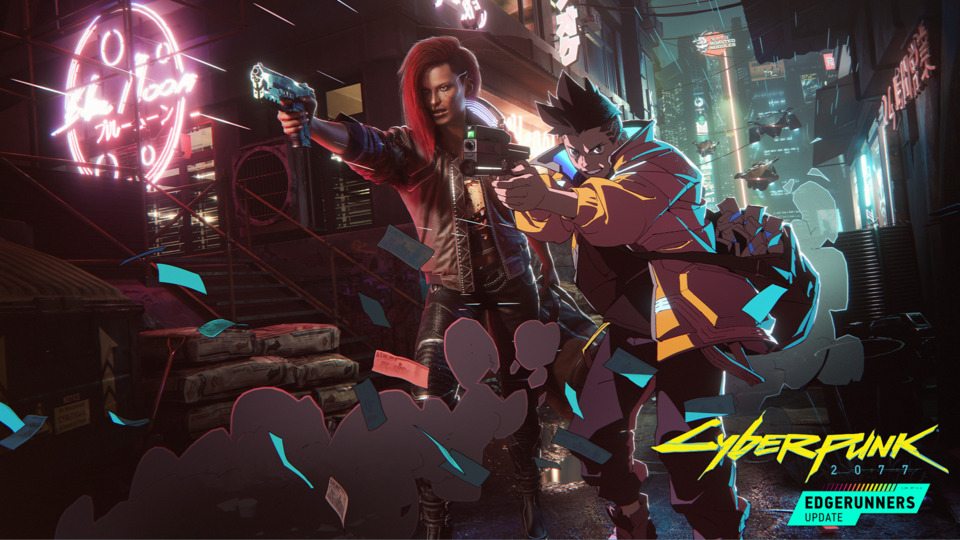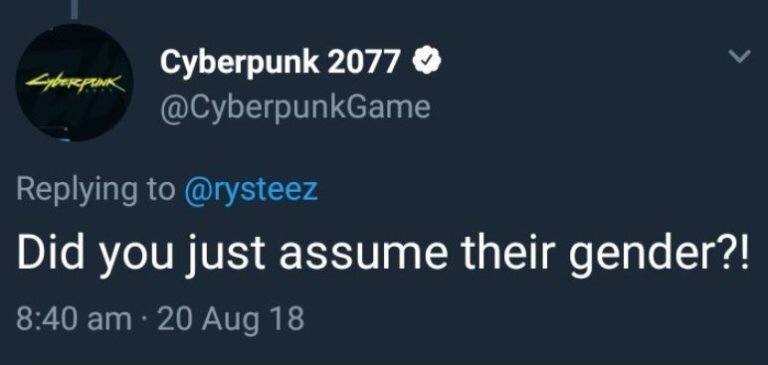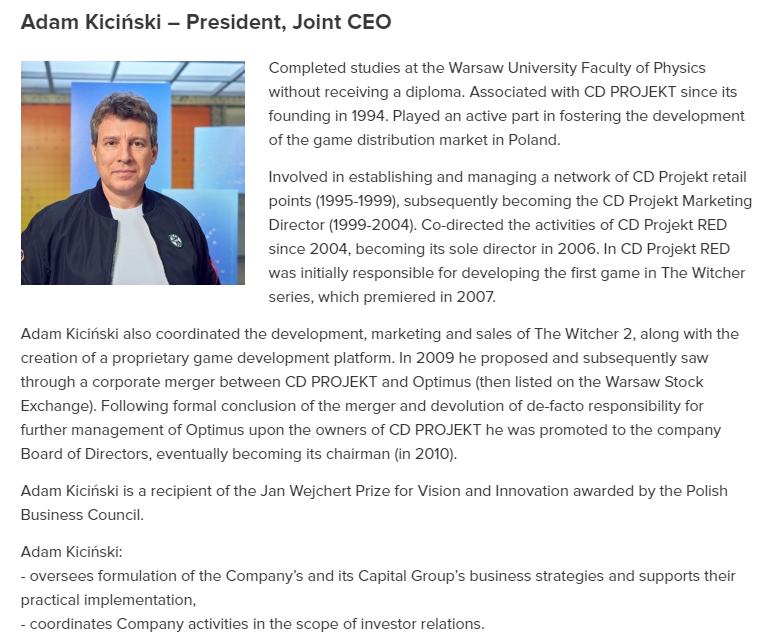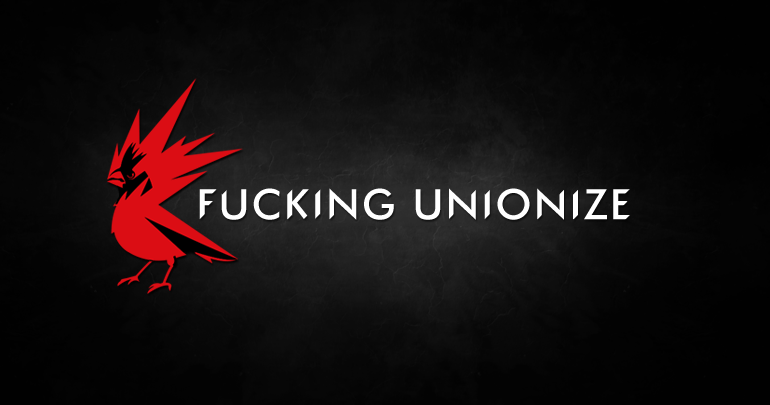I Fear Edgerunners And Sequel Hype Is Whitewashing CD Projekt Red's Many Mistakes With 2077
By ZombiePie 15 Comments
Preamble (i.e., Edgerunners Is A Good Show, But....)

There's a bit of a storyline on Giant Bomb of me not being a fan of the well-known anime studio, Studio Trigger. During the Whiskey Media days, I penned several scathing reviews for Kill la Kill that got me endless hate mail and even death threats. Later, equally undesirable were my early calls that Darling in the Franxx was one of the worst big-titled animes I have seen in the last ten years. That last point is far from controversial nowadays, and hindsight has largely vindicated me. Still, regardless of what the studio touches, I have always called them one of the more straightforward examples of current anime direction favoring style over substance to get internet fandom salivating over one or two action scenes. Additionally, in my perspective, everything you could say about the modern Marvel movies always having the same style and structure applies to the lion's share of Studio Trigger's output. Hence, I went into Cyberpunk: Edgerunners with tempered expectations, even with universally positive reviews marching in like they were on a Henry Ford-approved assembly line.
Overall, the show met and exceeded my expectations, though I am predictably not as effusive about my praise as most. It is a good show that is recommendable to people who want to see a highly stylized cyberpunk world with enough quality storytelling to keep you wanting to see more. The two main characters are absolute highlights, but I found the surrounding secondary cast to be one of the weakest in a Trigger story. Most of the surrounding characters felt like they were in the "just tagging along for the ride" bucket, which made some of the show's emotional deliveries less potent, which I found weird considering how character-driven Edgerunners is, especially near the end of the first season. The pacing also feels like typical Trigger, with them taking their sweet-ass time to kick their main plot into overdrive, making some mid-season plot-focused story dumps clunky and awkward. Also, with the show having a natural lead-in to an additional season, I still cannot help but worry that season two will buckle under the weight of its unresolved plot threads and characters, which is a problem with every show Trigger touches. However, it's a technical masterpiece that exudes style and sports two memorable and compelling primary characters. Also, the soundtrack for Edgerunners is absolutely worth tracking down.
So, if Edgerunners can satisfy a Studio Trigger skeptic like me, it stands to reason that its driving interest back into Cyberpunk 2077 makes perfect sense. Some of you might even be aware that following the season one conclusion of Edgrunners, 2077 saw a 300% jump in concurrent online players and even became the most-played single-player game on Stream for a short bit. Forbes even reported a week in September when 2077 was the best-selling game on Steam. Likewise, when developer CD Projekt Red announced a smattering of new Witcher games, they simultaneously announced a full-fledged sequel for 2077. It's a notable turn of events after the game's incredibly rough launch, which I will not belabor here. Instead, I wish to explore how the company-wide climate that led to Cyberpunk 2077's problematic launch, whether it be the company's repeated transphobic marketing, dysfunctional upper management, or use of crunch, all appear to be present at CD Projekt Red to this day. With many people gravitating towards Cyberpunk 2077, whether it be because of Edgerunners or sequel excitement, it's important to remind ourselves why there's likely no ethical way to consume its content.
Edgerunners' Diverse And Well-Written Cast Does Not Absolve CD Projekt Red's Repeated Edgelord Marketing That Used Transphobia
One of the critical reasons for the excitement around Edgerunners stems from its diverse and heterozygous cast. The show revels in the attributes that define the cyberpunk genre. Principally, it empowers all of its characters to fight against their limitations and, with the help of technology, wage war against their sources of oppression. Regrettably, Cyberpunk 2077 fumbled with that defining characteristic in its marketing and framing of LBTQ people, particularly trans people. The launch of Cyberpunk 2077 was an unmitigated mess, and it, unfortunately, overshadowed a different tire fire leading up to its release of CD Projekt Red's own creation. To try and make Cyberpunk 2077 seem grittier and edgier, CD Projekt delved into edgelord/tough-guy jock talk that repeated several stereotypes and echoed demeaning and offensive commentary.

Now, I know this section will be the only part some people on the internet will read, so I'll try my best to present a solid case on why CD Projekt Red's leadership doesn't deserve the benefit of the doubt. Their off-the-cuff nonsense was NOT a one-time or even two-time problem. The company made the same mistake, even after repeated promises they would "get better" across a four to five-year span. The first example stems from the official Cyberpunk 2077 Twitter account replying to a random Twitter user with, "Did you just assume their gender?!" For those unaware, that particular line is a transphobic punchline and soundbite traditionally used by individuals to diminish trans perspectives and input on media. Shortly after the reply was published, CD Projekt Red deleted the Tweet and stated they were not aware of the implications of their comment but failed to issue a full apology. Then, two months later, GOG, a subsidiary of CD Projekt, used "#WontBeErased" to promote their commercial storefront. The hashtag was initially created to bring attention to a Trump administration memo that proposed revoking protections and rights for trans people on a federal level. GOG and CD Projekt Red deleted the Tweet, but instead of issuing a full apology, added that GOG would stay away from politics in the future. Instead of communicating how they would work with an LGTBQ partner to prevent further mistakes or even donate to a charitable cause, they took the most middle-of-the-road centrist route possible. And centrism isn't precisely a defining characteristic of cyberpunk if I must say, myself.

If we open things up to include GOG, I should also remind you of the time CD Projekt fired an employee that used GOG's Twitter account to espouse anti-trans sentiments. I mention this case because in subsequent interviews on alt-right media platforms, the fired employee stated they were surprised at their sacking because they felt like they were simply repeating sentiments, humor, and viewpoints they heard at CD Projekt. Take that last bit with a grain of salt, considering it's coming from a fired employee. Still, when you look at the preponderance of the evidence, it's easy to imagine CD Projekt Red has some of the toxic male-centric sensibilities we have seen manifest in other larger studios (i.e., Activision-Blizzard, Ubisoft, etc.). Need I remind you of all of their weirdly edgelord promotional stuff in the lead-up to the release of The Witcher 3, where they even described the game "Skyrim in a Game of Thrones sauce?" Then, there are the TWO controversies associated with the artwork contained in Cyberpunk 2077 proper. The first and far more notorious has to be the ChroManticore advertisement, wherein what many believe to be a transgender character is posing next to a soda can named "ChroManticore." The first issue is that one of the more prominent examples of a trans character in the game boils them down to their sex organs or, at the very least, their sex appeal. The second is how the soda they are advertising uses wordplay that manipulates "manticore," which traditionally translates to "man-eater." Then there's the less prominent advertisement for "Watson Whore" wherein you see what appears to be a trans person puking their guts out into a toilet in a state of undress. Both of the in-game advertisements with possible trans characters make the most vulnerable and sensitive parts of their body and possibly their identity the focal point, as if it's no big deal. Oh, then there was that time when CD Projekt hosted a cosplay contest and awarded a cis-gendered woman cosplaying as a trans character while sporting a glowing fake dick with their grand prize?
Now, there might be some of you that say, "Hey, most of this seems like it might be a coincidence," or possibly, "But Cyberpunk is trying to create a seedy world where EVERYONE is shitty or down in their luck!" To the first claim, I'm not sure how you can look at all of these "accidents" that CD Projekt made in the lead-up to, and even after the release of their game, and call them a "coincidence." They have had plenty of opportunities to learn, reach out to possible community partners, and reflect on the hurt their actions might have had on others. Shit, after the second twitter mishap, some pro-trans and LGBTQ charities and organizations happily offered their services to guarantee Cyberpunk 2077 could be an empowering gaming experience rather than one that felt like an attack. Instead, they issued the same corporate platitude that they would "get better" while they STILL made the same mistakes again and again. They either don't care or actively think their actions are morally correct. To the second claim, I have to return to what traditionally represents the "heart" of the cyberpunk genre. It's about using your technological edge to fight back against sources of oppression or discrimination. It is well within CD Projekt Red's right to interpret the source material how it sees fit. Though, I'm reminded of George Carlin's comments about being uneasy about Andrew Dice Clay picking on traditional "underdogs" like women, gays, and religious minorities for his comedy routines. You can certainly do that, but you have to be careful because the crowd you will invite isn't a crowd you want to associate with. In fact, CD Projekt's case is doubly uneasy, considering they took the Voodoo Boys, who were white in the original board game, and were that way, as a metaphor for cultural appropriation, but made them Haitian in 2077.
Let's Talk About The CEO "Stepping Down" And How That Shows There's No Accountability At CD Projekt Red

When I first passed the concept of this blog by a friend I knew was far more optimistic about Cyberpunk 2077 and CD Projekt, they immediately pointed towards the recent leadership change in the company as evidence that the "winds of change" were finally coming. They are correct, at least on paper, that former joint CEO Marcin Iwiński is stepping down and handing over their responsibilities to someone else. What I think got lost in the reporting of this matter is how this "leadership change" is incredibly superficial and in no way a sign that a new face is bound to bring the systemic changes that the company desperately needs. First, Iwiński isn't leaving the company because of shareholder outrage over his mishandling of the release of Cyberpunk 2077. He's transitioning from being one of the company's joint CEOs to being a member of the company's supervisory board. He fills a now vacant position, and Adam Kiciński, who was the other joint CEO, is now assumed to be in a position to become the company's sole CEO.
Cycling a CEO to a business's board of directors, which is still a highly compensated position, and then promoting the figurehead of many of said business's examples of mismanagement is not "accountability." That's a move that would make Carl Icahn or Victor Posner proud. I want to clarify that I am in no way accusing CD Projekt of criminal wrongdoing or that this shakeup is ethically suspect. When Iwiński states that his intent is that he wishes to continue being a part of CD Projekt, but in a less formal and limited capacity, I believe him. However, with everything we have learned about CD Projekt's management, not the design or programming teams, being why 2077 launched hot and busted, I have very little confidence that the company is in a better situation to avoid future launch window controversies. Likewise, with Adam Kiciński in a position to take over as the company's full-time CEO, CD Projekt isn't gaining a forward-facing developer or consumer-oriented speakerphone. We will discuss this in more depth shortly, but Adam Kiciński was the person who mandated that all employees at CD Projekt work six-day workweeks for months before and after the launch of 2077.
Speaking of CD Projekt never holding itself to an exceptionally high standard, let's return to the marketing fiascos in the lead-up to the release of 2077. It wasn't until their second fuck up that the company issued a proper, albeit weak, apology. When they improperly used a hashtag, they stated, "GOG should focus only on games." Even after the second and third controversies, the company issued tenuous apologies at best, with no statements about setting new standards for how they will market or advertise their games. Requests for diversity training or even sharing diversity demographics across the company compared to its leadership went largely ignored. And again, the only time there was any sign that CD Projekt cut or fired someone for espousing these views was when one of their marketing staff flipped to the alt-right on their official corporate social media accounts. With the same faces in charge of the company as it gears up for more Witcher and 2077 content, it is hard not to imagine the same fuck-ups happening again.
Witcher And 2077 Sequel Hype Has Caused Everyone To Forget About CD Projekt Red Repeatedly Backtracking Promises Related To Crunch

One year before the release of Cyberpunk 2077, the corporate leadership of CD Projekt Red promised the game would not utilize crunch. Approximately one month before the game released, those same bosses announced the entire design, programming, and testing teams for 2077 would be working six-day workweeks. Adam Kiciński, the then-joint-CEO of the company, even stated to shareholders the company was engaged in a "necessary crunch" to ensure the game met its 2020 release target. He even went so far as to say the company's use of crunch was "not that bad—and never was." Kiciński eventually apologized for his comments. However, it is essential to note that within that same report, Forbes and PC Gamer reported on developers and designers echoing heinous and grueling work conditions. Even when Kiciński apologized, sources confirmed that CD Projekt remained steadfast in its enforcement of a six-day workweek with paid, but required overtime. Regrettably, none of these actions should have been too surprising. Despite Kiciński's claims that CD Projekt Red envisioned itself "treating developers with respect" years before the release of 2077, many of its own employees were coming forward that the crunch period for The Witcher 3: Wild Hunt was "inhumane."
Whenever the topic of crunch comes up on this site or any video game website for that matter, there is a contingent that takes it upon themselves to defend the practice. The reasoning for these people is that crunch somehow guarantees that their highly anticipated games will come out earlier and better. For these people, I plea for some compassion for the developers who stomach perpetual hardship so you can swoon over extra pixels or a new ultra-impressive cinematic. The science of remaining in a chair for prolonged periods fucking up your body is pretty definitive, let alone staring at a computer screen for an equal amount of time. A physical toll is not displayed on the sticker price of your hotly anticipated AAA title. Similarly, few people deliberately set out to make a bad video game when entering the industry. Studios across the planet are asking their developers to put their entire hearts into the games they work on, and to have that hard work not translate into something that does well is soul-crushing. Even if Poland's labor laws guarantee paid overtime or employees in other areas of tech are expected to slug in 80+ hour work weeks, I'm unconvinced the human body and mind are designed for this labor, especially if it persists in a culture of dysfunction.
It's also worth mentioning how Cyberpunk 2077 is a case study on why crunch doesn't work. CD Projekt Red backtracked and broke their promises about not using crunch, and to what result? Even after asking their employees to work beyond the norm for over a month, the game STILL launched busted. It only corrected itself after the studio engaged in a long-term plan and roadmap that persisted for over a year! 2077 didn't need a month-long crunch session; it needed additional development time and healthy management expectations. Finally, if crunch was a necessary and critical aspect of CD Projekt's game development, why has the new development lead for The Witcher 4 promised it would not be present during the game's production? Using crunch to get Cyberpunk 2077 to the "shippable" state seen during its initial launch is not evidence of an effective development strategy. It is a clear sign of rampant mismanagement and company leadership that prioritizes quick fixes over systemic change that could improve production and staff morale.
That leaves many of us that enjoy Edgerunners and the property associated with it in a dispiriting position. CD Projekt already is seeing the revival of interest in Cyberpunk 2077 as confirmation that they "got there" and that everything they did to get to this point worked. This point returns me to a conclusion I do not wish to make but feel safe in saying. There's no ethical way to consume Edgerunners, Cyberpunk 2077, and the hype train for any of these sequels. Unless CD Projekt makes the development process of their upcoming games as transparent as possible and starts working with some of the communities they may have harmed, they are bound to repeat the same mistakes they have been making for over ten years. Sure, the new project lead for one of the upcoming Witcher games said they are committed to not using crunch as a strategy. None of that addresses whether their marketing team will espouse a bunch of transphobic memes. Also, with everything that has happened up to this point, the burden of proof is on them. If they honestly were committed to that point, then they should allow an independent accounting firm to anonymously poll every one of their employees to see if the head honcho's interpretation of "no crunch" met their expectations. Otherwise, welcome to capitalism. I do not purport to the have the solutions to any of the problems and never did.
